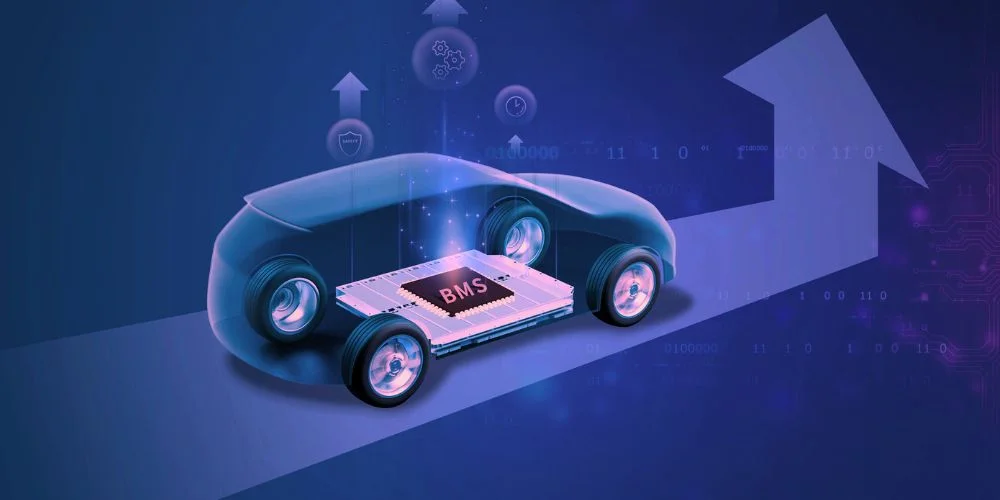In the fast-paced landscape of sustainable transportation, electric vehicle (EV) batteries have emerged as the driving force behind a revolutionary shift toward cleaner and more efficient mobility. As the world seeks to combat climate change, reduce dependence on fossil fuels, and create a greener future, the evolution of EV batteries is reshaping the automotive industry and paving the way for a more sustainable transportation ecosystem.
Energizing the Green Transition
At the heart of every electric vehicle lies a battery pack that stores and delivers the energy needed to power the vehicle’s electric motor. These batteries have undergone remarkable advancements in recent years, transforming the electric vehicle from a niche concept to a mainstream mode of transportation.
EV batteries utilize various chemistries, such as lithium-ion, to store and release energy efficiently. These batteries’ energy density and capacity have increased significantly, enabling EVs to achieve longer ranges and faster acceleration. This progress is not only driving the adoption of electric vehicles but also reshaping our perceptions of their capabilities.
Driving Range and Performance
One key factor influencing the adoption of electric vehicles is their driving range—the distance they can travel on a single charge. Early electric cars often faced range limitations that made them less practical for long journeys. However, the evolution of EV batteries has led to substantial improvements in range, allowing many modern electric vehicles to travel well over 200 miles on a single charge.
Furthermore, the enhanced performance of EV batteries has led to impressive acceleration and torque capabilities. Electric vehicles are known for their instantaneous torque delivery, providing drivers with a responsive and exhilarating driving experience. This shift in performance dynamics challenges traditional notions of what a vehicle powered by electricity can achieve.
Charging Infrastructure and Convenience
As EV battery technology continues to evolve, so does the charging infrastructure that supports it. Rapid advancements in charging technology are making it increasingly convenient for drivers to charge their electric vehicles. High-speed charging stations, often called “fast chargers” or “superchargers,” can replenish a significant portion of an EV battery’s capacity in minutes, making long road trips more feasible.
Additionally, innovations in battery management systems and charging protocols are optimizing the charging process and extending the overall lifespan of EV batteries. These developments enhance the overall ownership experience and contribute to the growing acceptance of electric vehicles as a viable transportation solution.
Sustainability and Environmental Impact
The journey towards sustainable transportation goes beyond reducing tailpipe emissions—it also involves considering the environmental impact of battery production and disposal. EV battery manufacturers increasingly prioritize sustainable practices by using responsibly sourced materials and implementing recycling programs for end-of-life batteries.
Moreover, EV batteries’ energy density and efficiency directly affect energy consumption and carbon emissions. As battery technology improves, EVs become more energy-efficient and reduce their lifecycle emissions, especially when charged using renewable energy sources.
Challenges and Ongoing Research
While the progress in EV battery technology is undeniable, challenges must be addressed to accelerate the transition to electric mobility. Battery cost remains a significant barrier to widespread adoption, as high upfront costs can deter potential buyers. Research and development efforts are focused on reducing the cost of materials and manufacturing processes to make EVs more affordable.
Additionally, the availability of raw materials, such as lithium and cobalt, can impact the scalability of battery production. Developing alternatives to these materials or optimizing their extraction and processing methods is crucial to ensuring a sustainable supply chain for EV batteries.
Innovation and Beyond
The road ahead for EV batteries is paved with innovation and opportunity. Researchers and scientists are exploring novel battery chemistries, such as solid-state batteries, which offer higher energy densities, faster charging capabilities, and improved safety. These advancements have the potential to redefine the performance and characteristics of electric vehicles, making them an even more attractive alternative to internal combustion engine vehicles.
Furthermore, the potential for second-life applications for used EV batteries is gaining traction. Batteries no longer suitable for vehicle use can still retain a significant portion of their capacity, making them suitable for stationary energy storage applications, such as home energy systems and grid stabilization.
Conclusion
The evolution of EV batteries propels us toward a charged future—one where sustainable transportation is not only a reality but a global norm. The remarkable progress in battery technology underscores the capacity of human innovation to drive positive change in response to urgent global challenges.
As we witness the rise of electric vehicles and the growth of their ecosystem, it’s clear that the power of EV batteries is paving the road to sustainability. By embracing these advancements, we’re not just transitioning from gasoline to electricity—we’re embracing a transformative shift toward a cleaner, greener, and more sustainable transportation landscape that benefits us all. As we journey toward a future powered by the evolution of EV batteries, we’re steering toward a world where innovation and sustainability drive us forward, one charge at a time.




